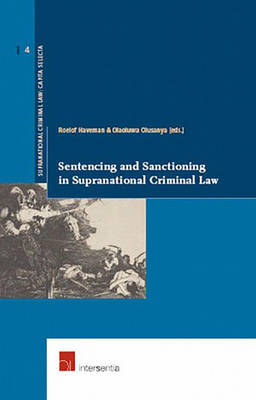
- Retrait gratuit dans votre magasin Club
- 7.000.000 titres dans notre catalogue
- Payer en toute sécurité
- Toujours un magasin près de chez vous
- Retrait gratuit dans votre magasin Club
- 7.000.0000 titres dans notre catalogue
- Payer en toute sécurité
- Toujours un magasin près de chez vous
Description
The supranational system is still under construction and will be so for at least some decades before it can be called a consistent system with an intrinsic logic. Sentencing and sanctioning is one of the issues in which this becomes clear. The ICC-complementarity principle, the principle of legality, the execution of sanctions, and the relation of the supranational system to domestic systems such as the Rwandan gacaca, are all topics to be thoroughly discussed. The uplifting of a penal system from a relatively small community - an individual state - with relative agreement on basic aspects of punishing, to the mondial, per definition heterogeneous, level, where no such agreement exists, reveals many controversies. Opinions on all aspects of sanctioning differ widely all over the world. What is the proper sanction for a crime against humanity or an act of genocide? And whom to punish? Controversy exists regarding States, children (child soldiers) and mentally incapable offenders as punishable subjects. Questionable also are the goals of the supranational criminal justice system, and whether these goals are achieved. Too often these supranational goals seem to be supra-natural as well. Goals steer the system in choosing the number of accused to be prosecuted and judged and the quality of its proceedings, but also questions such as whether a detainee has the right to be visited by a prostitute. These are some of the questions that are highlighted in this fourth Volume of the Supranational Criminal Law series
Spécifications
Parties prenantes
- Auteur(s) :
- Editeur:
Contenu
- Nombre de pages :
- 212
- Langue:
- Anglais
- Collection :
Caractéristiques
- EAN:
- 9789050956079
- Date de parution :
- 05-10-06
- Format:
- Livre broché
- Format numérique:
- Trade paperback (VS)
- Dimensions :
- 159 mm x 241 mm
- Poids :
- 331 g

Les avis
Nous publions uniquement les avis qui respectent les conditions requises. Consultez nos conditions pour les avis.






